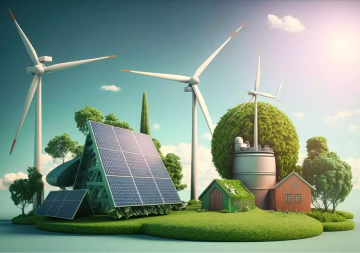
In April 2022, MP Supriya Sule from the Nationalist Congress Party (NCP) introduced a
Private Member’s Bill to the Lok Sabha aimed at legalising same-sex marriage under the
Special Marriage Act, fixing 18 years as the age limit for allowing LGBTQ+ couples to marry. Whilst debates and deliberations on the issue of same-sex marriages have been going on now for a long time, one crucial aspect that remains ignored is the adoption and familial rights of the LGBTQ community. The legislative and judicial laws exclude them from fundamental constitutional rights such as the Right to Equality, Freedom of Speech and Expression, and Right to Life and Liberty. At a time when the entire world is taking steps to be more LGBTQ+ friendly, it is the right time for India to be the first South-Asian country and remove the curbs on same-sex adoption.
Legislative stumbling blocks
The
Hindu Adoption and Maintenance Act, 1956 (HAMA), the only codified law on adoption in India is applicable to Hindus, Buddhists, Sikhs, and Jains, making marital relationships, and the consent of both spouses mandatory for adoption by couples. The words like ‘husband’ and ‘wife’ used in the act point to the statute’s binary vision. No specific law is available for Parsis, Christians, and Jews. Adoption was not even an option for Muslims until the
2014 Shabnam Hashmi Judgement, which allowed adoption for all by virtue of the
Juvenile Justice Act (JJ Act), irrespective of any discrimination. However, both laws do not mention anything about adoption by homosexual couples and ‘live-in’ couples.
The legislative and judicial laws exclude them from fundamental constitutional rights such as the Right to Equality, Freedom of Speech and Expression, and Right to Life and Liberty.
The Central Adoption Resource Authority (CARA) is the current apex controlling body in matters of legal adoption recognised by the
Hague Convention on Intercountry Adoption. Whilst a
circular barring partners in a live-in relationship from becoming prospective adoptive parents on case to case basis has recently been withdrawn by CARA, such couples fall entirely out of the purview of the
Surrogacy Regulation Act of 2021, reiterating the blindness donned by the government in this regard. No such steps have been taken in this regard for homosexual couples, pushing them to explore other ways like adoption in one parent’s name.
Tara Narula, an advocate and legal fellow at ‘HAQ: Centre for Child Rights’, pointed out that the only option left for homosexuals to adopt under HAMA or the JJ Act is single-parent adoption, which means either of the couples must sacrifice their rights. With the existing lacunae in the personal laws, the Indian government seems to have turned a blind eye to the rights of homosexuals.
Do the present judicial impediments conform by the Constitution?
The roots of various personal laws lie in the customs and practices believed and followed by people since the pre-constitutional era. However, culture is not a static concept; it evolves and grows with changing social purposes and beliefs. After the enforcement of the Constitution, every citizen is entitled to approach courts for a remedy whenever fundamental rights are infringed. This implies that even personal laws cannot override the Constitution, as
held by the court in various judgments, lest they become void under
Article 13.
The existing legislation stands in contravention of
Article 14, which provides for a
test of reasonable classification, which means the classification must be based on an intelligible differentia, and such classification must have a rational nexus with the object sought to be achieved. However, the exclusion of ‘same-sex couples’ specifically from the legislation has resulted in a stagnation in the battle to recognise the ‘same-sex’. There is no empirical evidence of even achieving a rational nexus by such an exclusion.
The courts act as social engineers in setting and modifying the social norms and, thus, have the power to influence the other courts and society nationally and internationally.
Preservation of social morality, the precariousness of lesbian & gay parenting i.e. providing a balanced role-modelling (mother-father), fear of social acceptance, and its psychological influence on children are a few objectives that are allegedly sought to be achieved. Such social narratives set by society play a significant role in tainting the impartiality of courts and influencing the major judicial and legislative decisions. This issue was raised before the court in the
2018 judgement, which decriminalised Article 377, though tangentially, where the court considered objections in the form of the sanctity of marriage, social problems, etc. However, in contrast to these concerns, it has been proved by various studies that children adopted by same-sex couples become more resilient, open-minded, and emotionally stable. A
report jointly published by APA’s Committee on Sexual Orientation and Gender Diversity and Committee on Women in Psychology (CWP) indicates the same.
Similarly,
Article 15 of the Constitution prohibits discrimination based on sex against any ‘citizen’ of India and not specifically against ‘males’ and ‘females’, denying homosexuals their basic rights. The
Right to Privacy enshrined under
Article 21 of our Constitution itself enwraps within it the familial rights: “Privacy includes at its core the preservation of personal intimacies, the sanctity of family life, marriage…sexual orientation”
. The courts act as social engineers in setting and modifying the social norms and, thus, have the power to influence the other courts and society nationally and internationally. Applying the ‘welfare of the children’ standard in conformity with the constitutional provisions point toward the need to change the societal discourse in this regard.
LGBTQ+ and South Asia
According to a
report by Equaldex, same-sex couples are legally allowed to adopt in 50 countries across the world, with Israel being the only country in entire Asia to permit it. South America, with 50 percent legal equality in terms of same-sex adoption, leads as a continent whilst leaving Asia far behind with just 2 percent equality. Europe stands at the second position with 40 percent legal equality and has the first country, Denmark, to have
recognised same-sex partners' status along with adoption. Soon after this, several European countries took similar steps, and the global ripples continue to reverberate even today, with
Slovenia following suit in 2022.
Europe stands at the second position with 40 percent legal equality and has the first country, Denmark, to have recognised same-sex partners' status along with adoption.
As far as South Asia is concerned, Principal 24 of the
Yogyakarta Principles states: “Everyone has a right to found to family, regardless of sexual orientation or gender identity.” These principles, published in 2006, were applied by the Supreme Court of Nepal in
Pant v. Nepal Government and the Supreme Court of India in
NALSA v. UOI to recognise the third gender.
Pakistan,
Bangladesh, and
Sri Lanka fully recognised the ‘third gender’ too in 2011, 2013, and 2016 respectively. Whilst
Bhutan decriminalised homosexuality in 2021, other countries like
Afghanistan and
Maldives still punish people for homosexuality.
With comparatively more established laws on the subject, and by making the existing laws equal for all LGBTQ+ couples, India can set an example for South Asian countries just as Denmark did for the European countries. One viable suggestion provided by the Parliamentary Standing Committee on Law and Personnel is to bring a
uniform civil code to Parliament and harmonise the Hindu Adoptions and Maintenance Act and the Juvenile Justice Act. In this regard, even the Supreme Court recently issued a
notice to the central Government demanding the implementation of equal adoption and guardianship law for all.
Laws, courts, debates, and deliberations deeply impact society and regulate social change. There were mixed views in society on the recognition of transgenders and homosexuality before the
Navtej Singh Johar judgement, but societal acceptance gradually started to follow the landmark decision. The ingrained societal stereotypes on same-sex adoption can also be countered gradually once the legislative and judicial steps are taken, calling for equal treatment of LGBTQ+ parenting.
The views expressed above belong to the author(s). ORF research and analyses now available on Telegram! Click here to access our curated content — blogs, longforms and interviews.



 In April 2022, MP Supriya Sule from the Nationalist Congress Party (NCP) introduced a
In April 2022, MP Supriya Sule from the Nationalist Congress Party (NCP) introduced a  PREV
PREV

